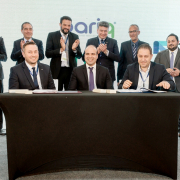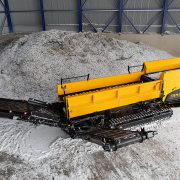Revision of the Waste Shipment Regulation: One Size Fits All Export Restrictions Can End EU Circular Economy Ambitions
The Waste Shipment Regulation (WSR) is a key piece of legislation in the move towards circular value chains. Burdensome procedures and lack of harmonisation rooted in the current regulation give an edge to linear value-chains, instead of boosting waste shipment for recycling and the marketing of raw materials from recycling (RMR).
However, the proposals released today by the European Commission pose major problems that will jeopardise Europe’s circular economy ambitions.
European recyclers entirely support the objective to better tackle illegal waste trade and exports of unprocessed waste to countries lacking the infrastructure for proper treatment. Such exports not only threaten human health and the environmental, they also are a major economic loss for Europe’s recycling industry.
Yet, by failing to distinguish between trash and RMR that meet strict quality specifications, the proposal falls short of levelling the playing field with extracted raw materials, which are not subject to any such constraints in EU law.
“Free, fair and sustainable trade of RMR is absolutely essential to boost high-quality recycling in Europe and ensure the recycling industry remains competitive,” says Emmanuel Katrakis, Secretary General of EuRIC.
“Europe’s recycling industry is powered by SMEs and large companies, who directly employ over hundreds of thousands of Europeans, and indirectly many more. As stressed in the recent letter signed by 300 European national recycling federations and companies, subjecting RMR – which are still classified as non-hazardous waste – to export restrictions will, in the absence of secured end-markets for circular materials in the EU, pose a vital threat to European recyclers, be them SMEs or large multinational companies, and undermine the creation of green industrial jobs in Europe.”
“With only 12% of raw materials used by the EU’s industry coming from recycling, binding requirements to use RMR in industrial value chains are urgently needed to ensure the excess supply of RMR, that would remain captive in Europe under these proposals, don’t end up in landfills. In the Commission’s toolbox to boost the transition towards a circular economy, binding requirements have proved to be the most efficient yet least utilised instrument, with the exception being for plastic packaging.”
EuRIC looks forward to working with the European Parliament and Council to better distinguish trash from RMR and ensure a fit-for-purpose regime applies to curb exports of problematic waste streams without closing frontiers to the most resource-efficient and carbon-neutral materials needed to achieve EU’s and global climate objectives.
EuRIC also looks forward to working with the co-legislators to further improve the ambition of proposed measures to ease intra-EU waste and raw materials from shipments, which are extremely important to achieve a well-functioning market of raw materials from recycling and level the playing field with extracted raw materials.
Source: EuRIC (Brussels, November 17, 2021)







